Philadelphia Climate Justice Collective
Members of the PCJC each represent a diverse population, geographic region, and unique environmental concerns across Philadelphia. The purpose of PCJC is to develop a locally driven environmental just climate transition plan to address long-standing environmental issues. PCJC's focus is to establish a vision and a climate just transition plan.
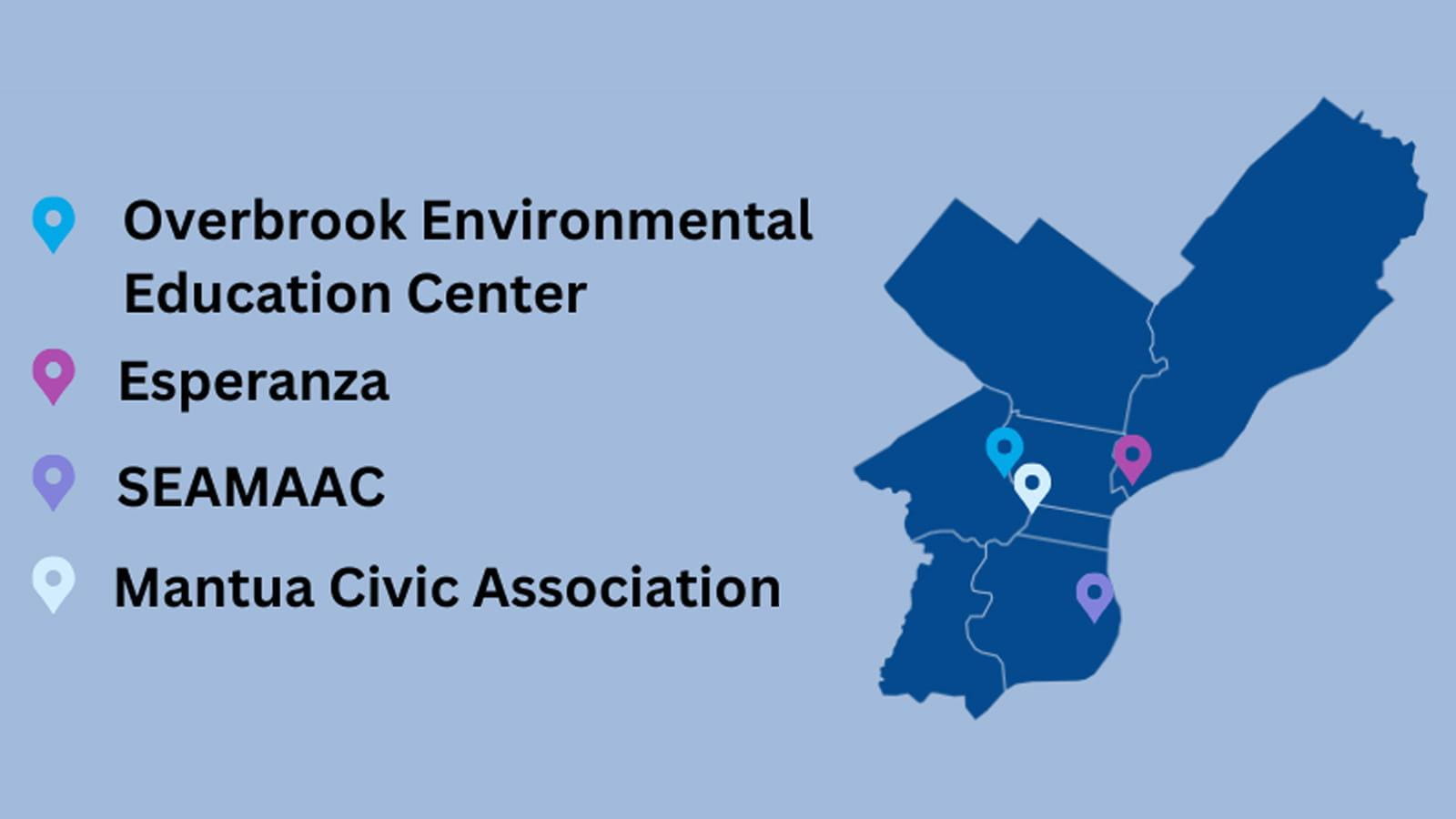
A map of Philadelphia showing the four Philadelphia Climate Justice Collective members, which includes the Overbrook Environmental Education Center, Esperanza, SEAMAAC, and the Mantua Civic Association.
PCJC Process
- Community priorities identified through projects.
- Technical analysis and support provided by TEC.
- Jointly developed actions report.
TEC Support
- Funds for projects
- Student and faculty support
- Consulting support
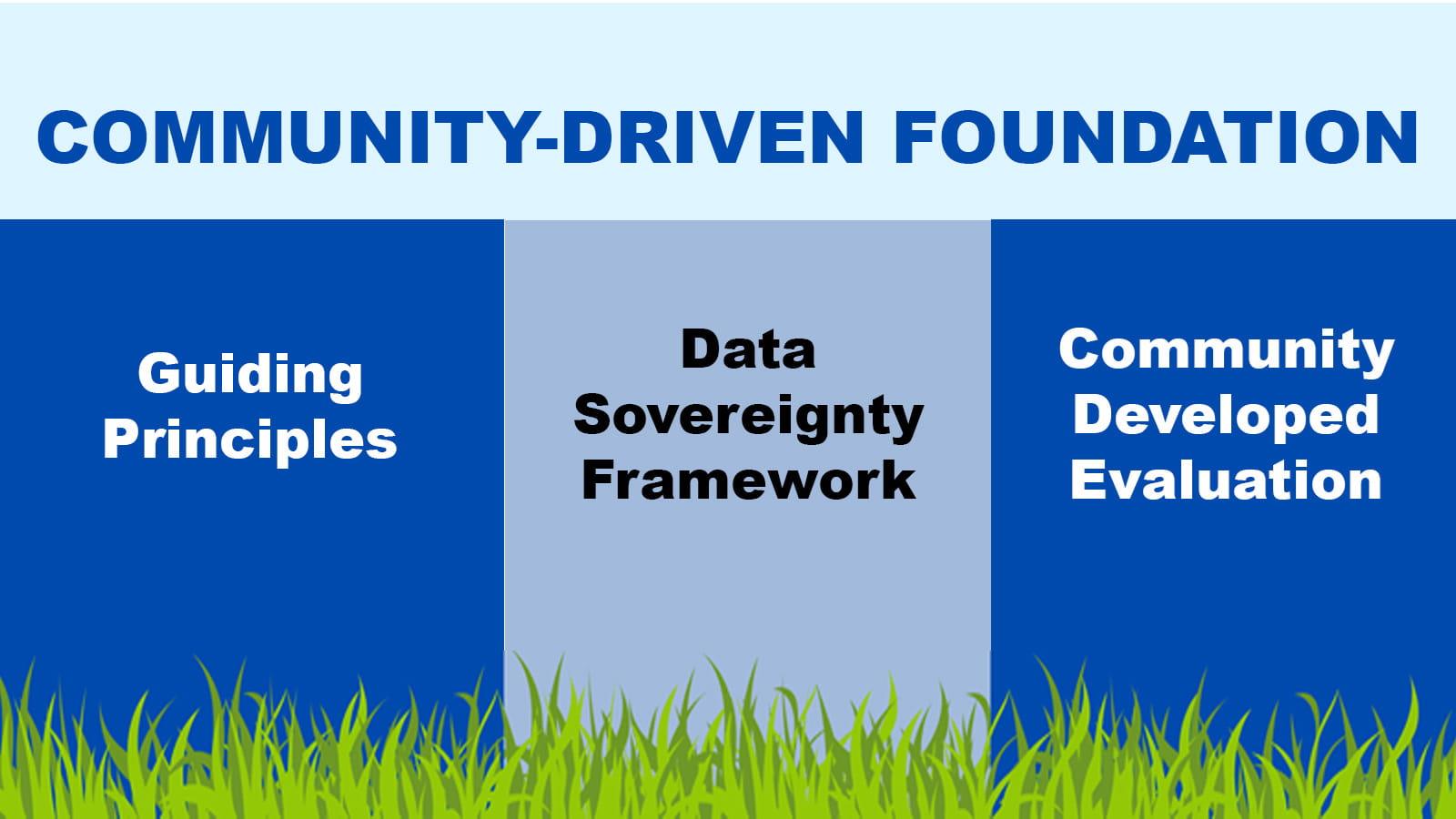
PCJC Recommendations Report
The Philadelphia Climate Justice Collective have developed a comprehensive set of recommendations to address the socio-economic, environmental justice, health/well-being and systemic circumstances of these distinct communities. The report reflects the insights and feedback from community members and leaders who have direct, first-hand experience with the challenges affecting their communities and the steps needed to address them.
PCJC Process Materials
PCJC Town Hall
On April 10th, The PCJC hosted an important conversation about the future of climate justice in Philadelphia. This event brought together community members, elected officials, government representatives, and philanthropic leaders to discuss how they can collectively advance environmental justice in the city. A key highlight of the event was the presentation of the Philadelphia Climate Justice Collective Report. Throughout the event, leaders from PCJC organizations shared insights on the report’s recommendations, and residents spoke about their lived experiences and engagement with these initiatives. Councilmember Jamie Gauthier affirmed her support for the PCJC’s work, highlighting the importance of community-led solutions. Dr. Josiah Kephart, Associate Professor at Drexel’s Dornsife School of Public Health, also provided an overview of the intersections between heat, and public health. The event concluded with a Q&A session, giving attendees the opportunity to further engage with the material and speakers.
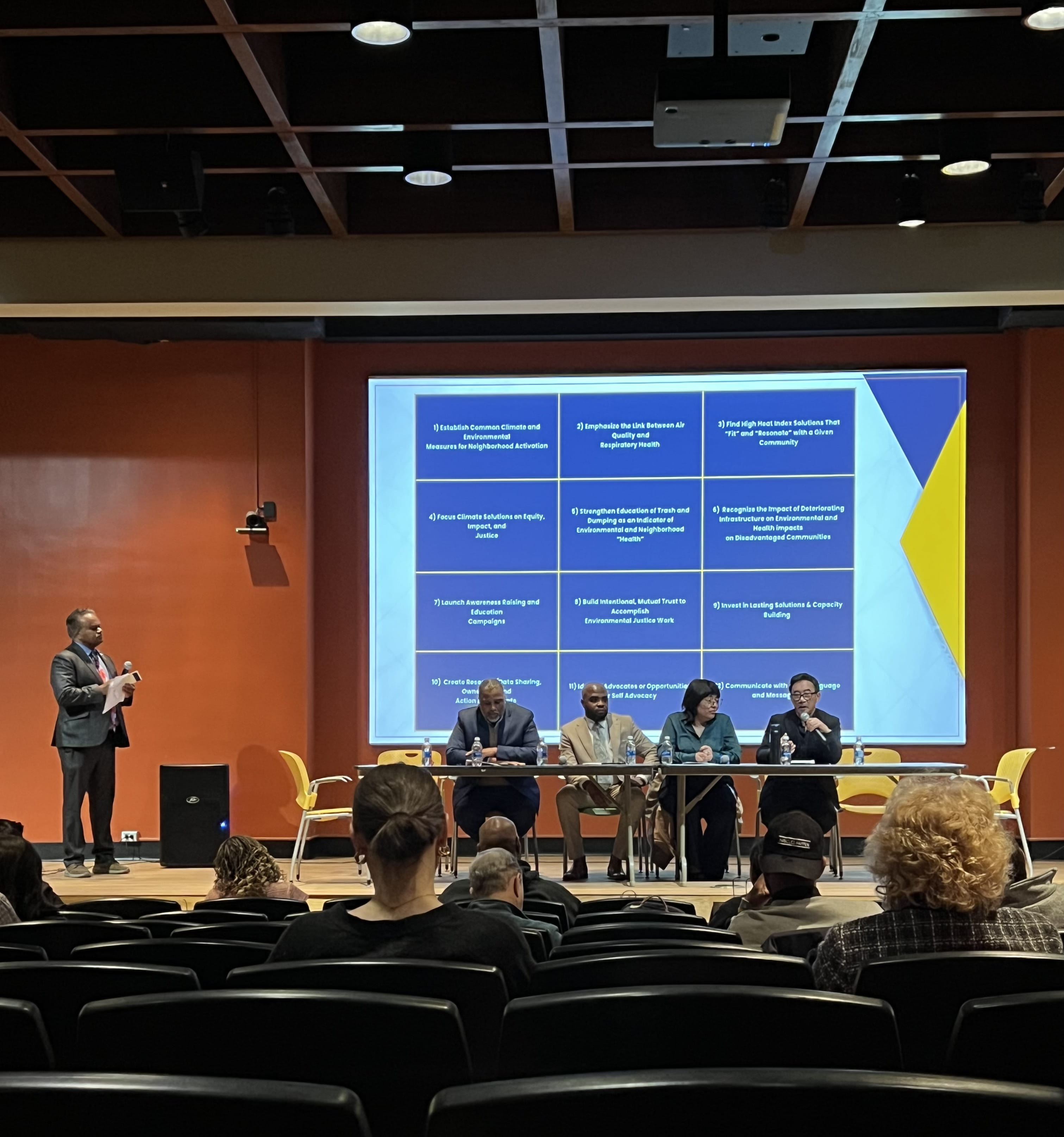
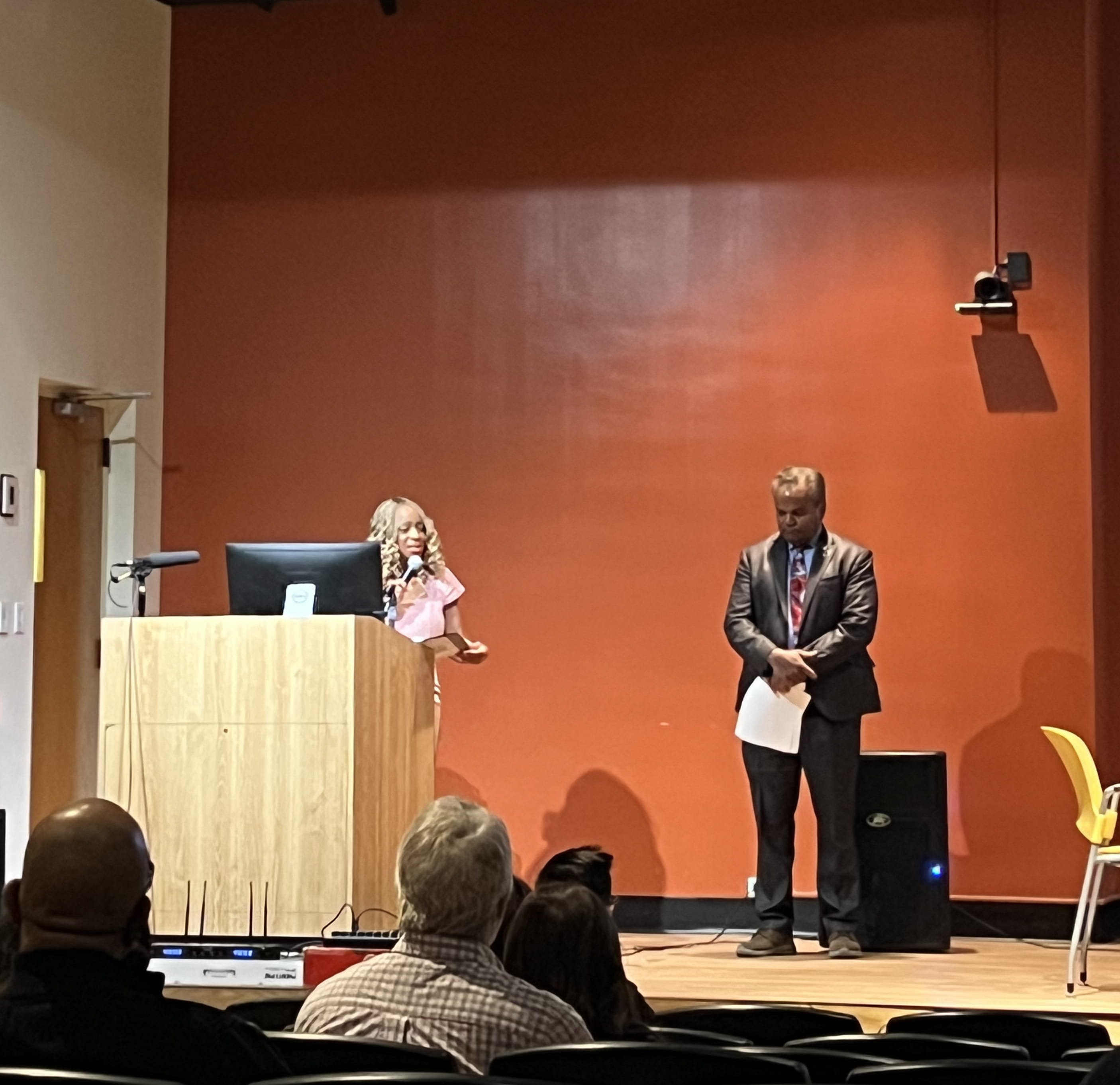
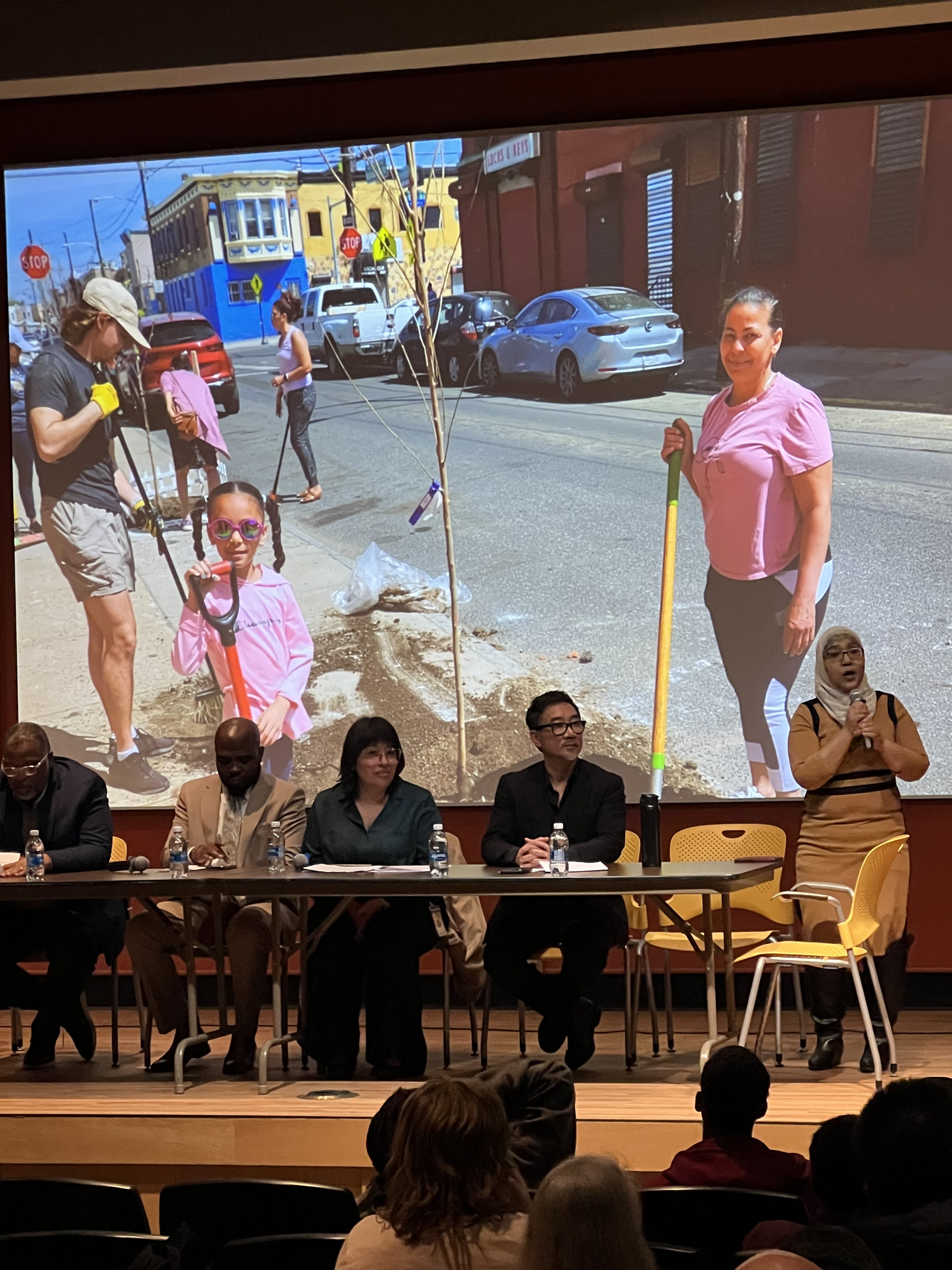
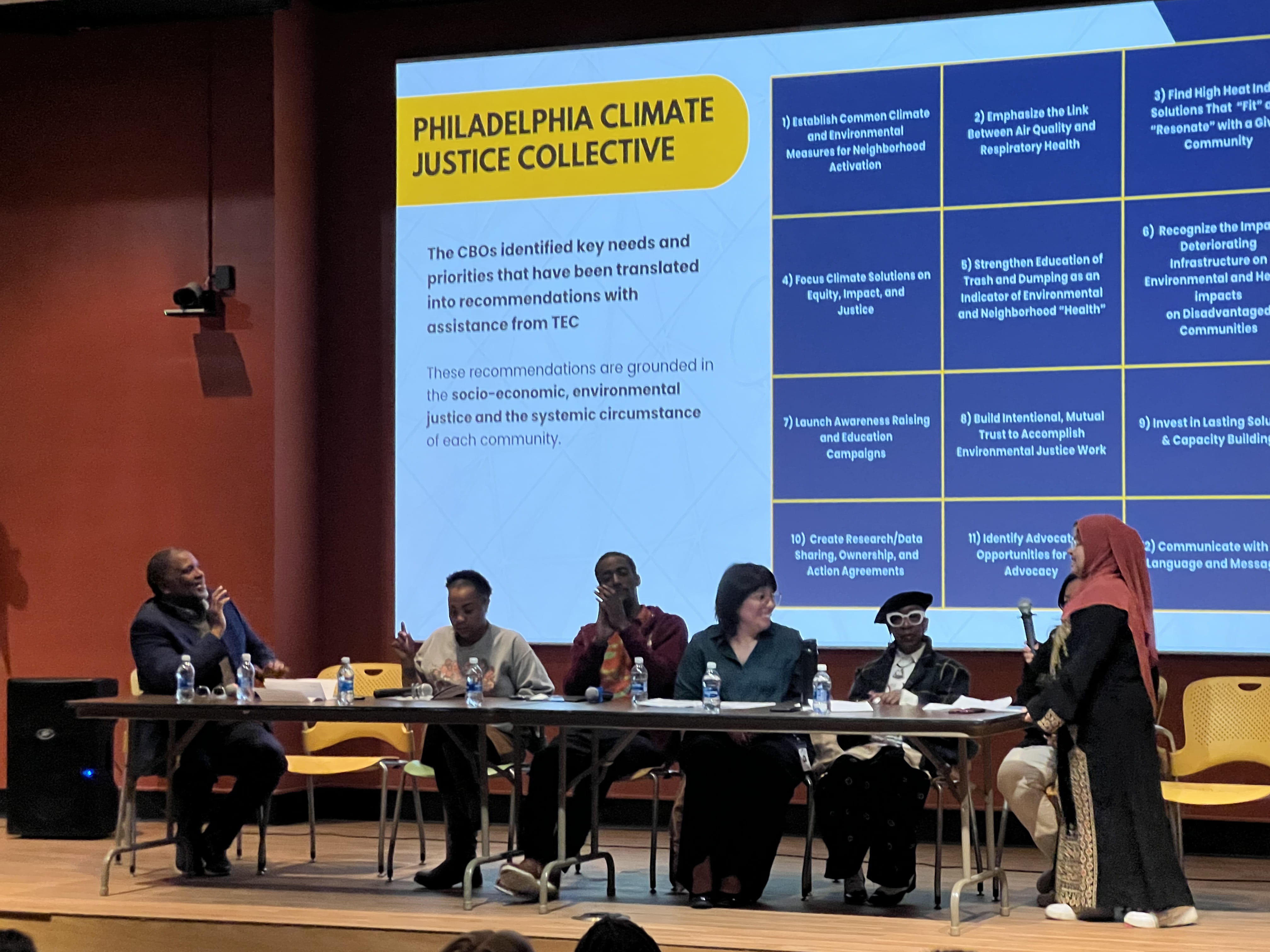
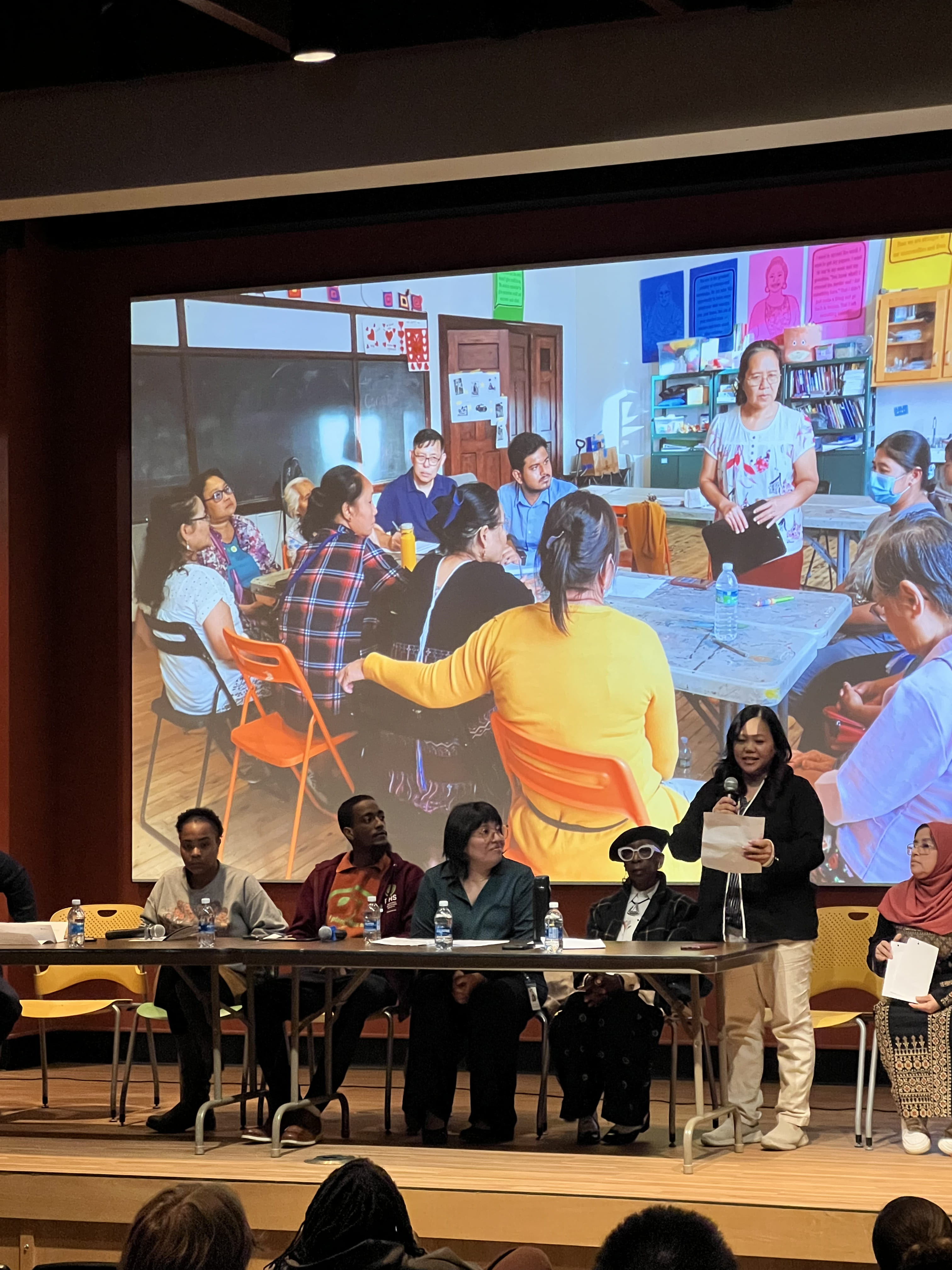
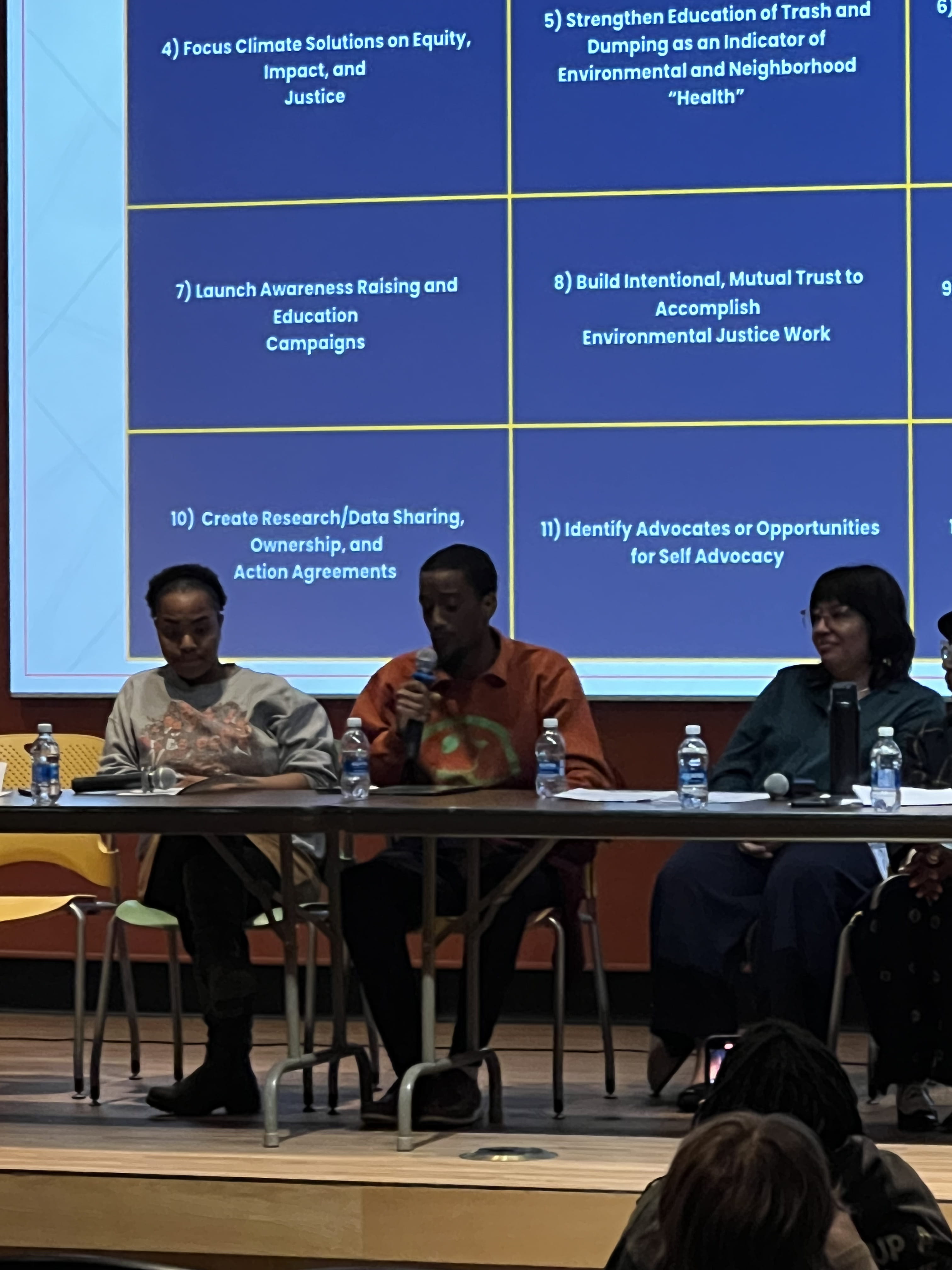
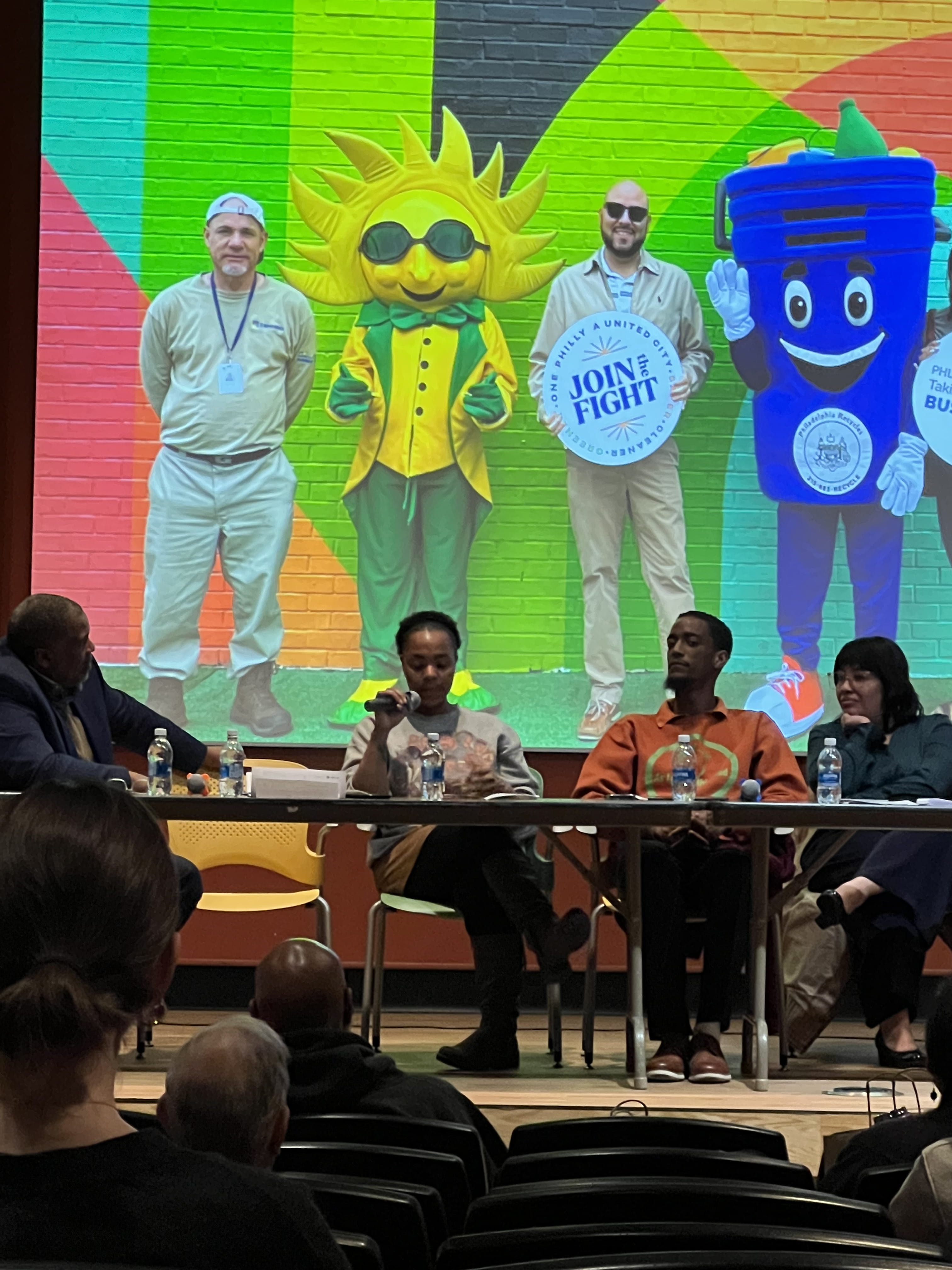
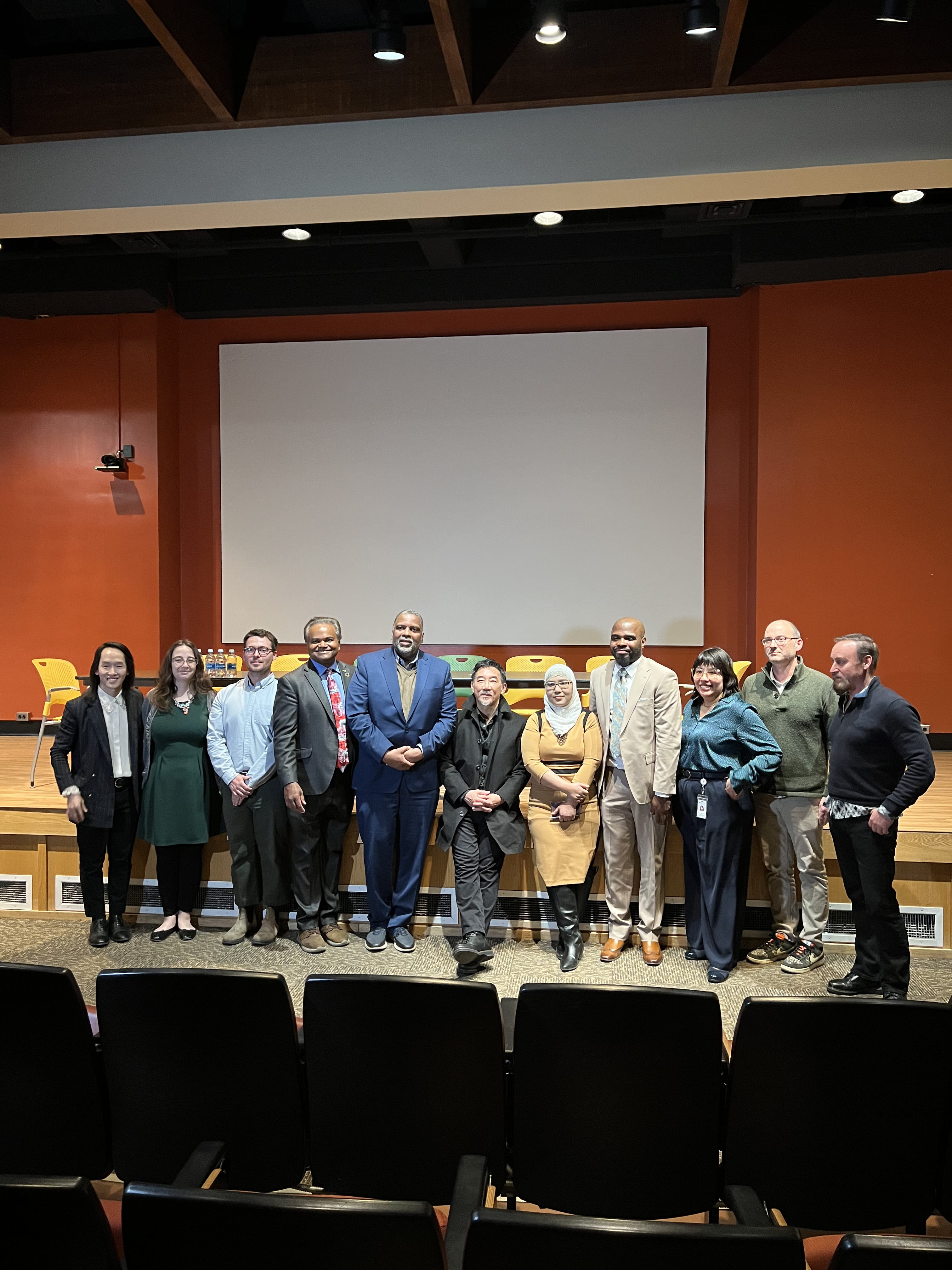
.jpg?w=7168&h=4032&as=0&hash=A16526C46DF83391D7342B6551ACE97A)
Collective Partners
The purpose of the Mantua Civic Association is to advocate for and represent the issues and concerns of residents, to improve the quality of life for all, and preserve the identity and history of Mantua for the next generation.
- They are organized to encourage neighborhood participation in an advisory and decision-making role regarding planning, zoning and development.
- They encourage vigilance in zoning and development matters so that the rights and interests of the majority of its residents are protected.
- They strive to ensure that the history of Mantua is preserved and retains its identity as a community for families.
- To work in collaboration with resident-driven initiatives that serve to positively impact the health, safety, education, employment and culture of the Mantua community.
TEC Is supping Mantua Civic Association's Youth Ambassador Program, a creative, place-based arts and environmental justice program designed to give students the opportunity to promote community stewardship of the 38th & Melon St Park. The goal of the program is to provide a hands-on approach of engaging youth to work together in a meaningful way to shape their environment through land stewardship activities while utilizing the power of the arts to encourage creative expression to redefine what environmental justice looks like for the next generation.
The Overbrook Environmental Education Center (OEEC) is a community based center dedicated to Environmental Education, Conservation, Public Health and Personal Enrichment. The mission of the OEEC is to remove barriers from the public's full appreciation of our region’s technological and environmental resources. This center promotes public education, and participation in sustainable technological and environmental projects. The OEEC identifies creative and exciting ways to develop environmentally friendly behaviors that reduces pollution and contamination of our waterways, land and air.
TEC is working with OEEC to support 1) The Overbrook Community Science (OCS) and, 2) The Overbrook Resilient Equity & Capacity-building Hub (REACH). The Overbrook Community Science project is structured to support the US Environmental Protection Agencies' priorities for community projects that increase public understanding of the benefits of environmental stewardship through community collaboration on issues of climate and environmental sustainability, environmental education capacity building with our municipal and Commonwealth partners. The REACH project is leveraged on the heels of the Overbrook Community Science Project and is designed to address multiple aspects of equitable community development and will be a “third place” destination and repository for community level environmental health data.
SEAMAAC has more than 40 years of experience serving and advocating for refugees, immigrants and other historically marginalized in the greater Philadelphia area. Their mission is “To support and serve immigrants and refugees and other politically, socially and economically marginalized communities as they seek to advance the condition of their lives in the United States." Throughout their history, SEAMAAC has worked to bring issues affecting marginalized Philadelphians to the forefront for policy makers and other health and social service agencies, while offering a variety of services and programs to meet the needs of community members.
Approximately 65% of their clients identify as Asian, 80% reside in South Philadelphia, and 92% are low-income. Many of the clients have limited English proficiency. Current SEAMAAC programs include hunger relief, material aid, school supports, case management, out-of-school time programs, immigrant family wellness, English as a Second Language, Digital literacy, digital navigation, naturalization, health access, civic engagement, vaccine engagement, elders’' services, domestic violence, green infrastructure, community gardening, and community development.
TEC is collaborating with SEAMAAC to conduct an in-depth analysis of the communities living in Southeast Philadelphia. SEAMAAC, renowned for its innovative programming and extensive engagement with diverse ethnicities in more than 52 languages representing 77 countries of origin, is spearheading this effort through comprehensive community focus groups and detailed surveys. Their aim is to identify the specific impacts of climate change in these communities, taking the necessary steps to address these issues and develop sustainable solutions.
